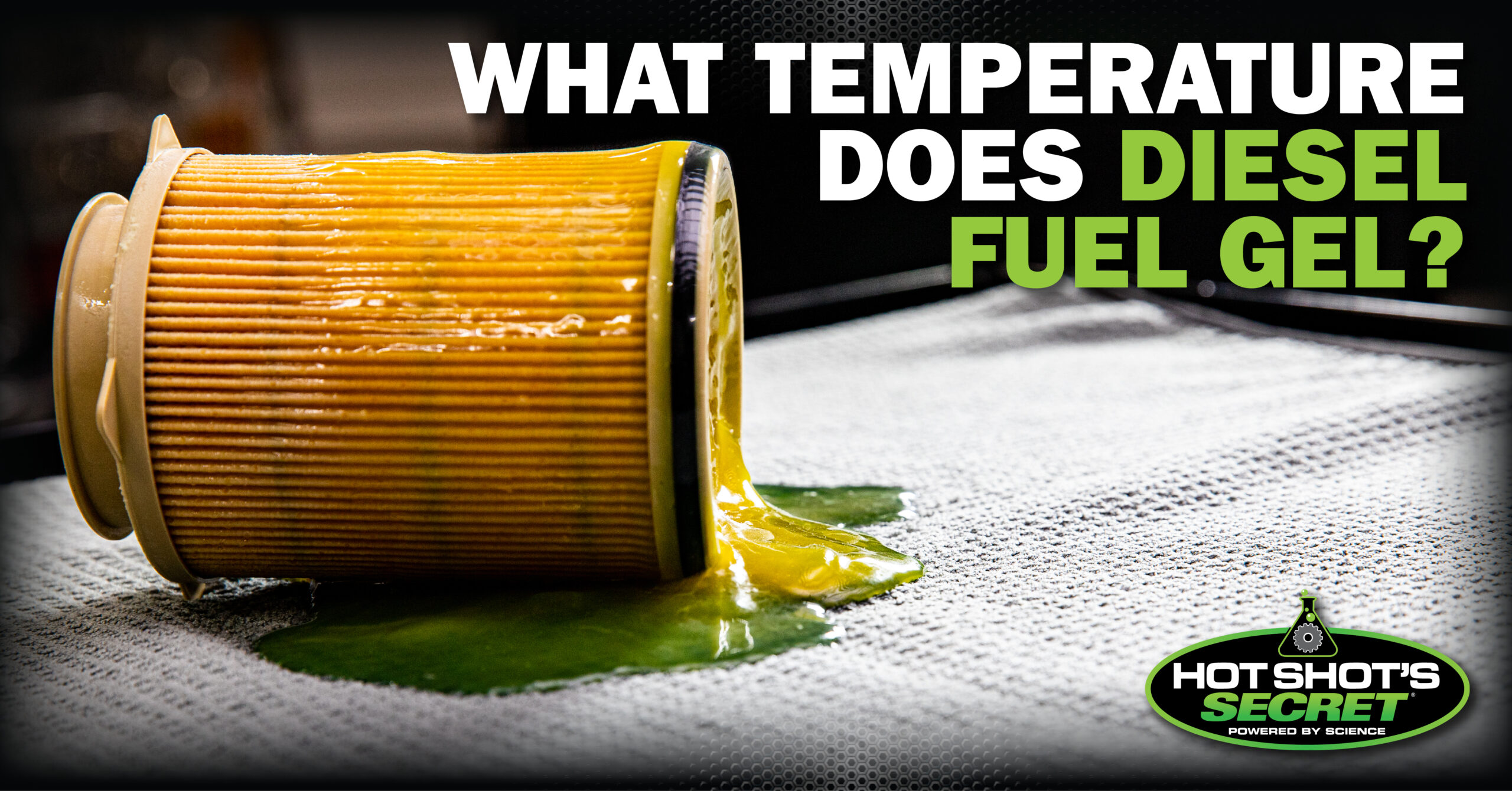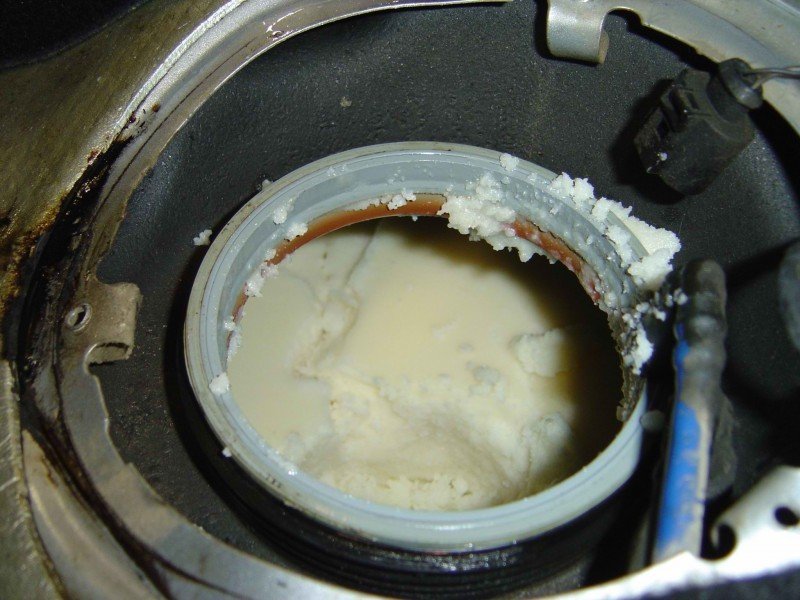
Diesel fuel gels up due to the crystallization of waxes in extremely cold weather, obstructing fuel flow in engines. In frigid temperatures, the wax present in diesel fuel solidifies, causing gelling that blocks fuel lines and filters.
This phenomenon hinders the engine’s operation, potentially leading to engine failure and other issues. Understanding why diesel fuel gels and how to prevent it is crucial for maintaining the performance and longevity of diesel engines, especially in cold climates. By employing preventive measures and using appropriate additives, diesel gelling can be mitigated, ensuring smooth engine operation even in freezing conditions.
Stay tuned to discover effective strategies for preventing diesel fuel gelling.

Credit: m.youtube.com
Navigate As You Want:
Understanding Diesel Fuel Gelling
Diesel fuel is prone to “gelling”, a term used to describe the crystallization of waxes in diesel fuel in extremely cold weather. This gelling can prevent fuel flow to the engine or clog fuel lines/filters, making it impossible for diesel engines to run. Gelling diesel is caused by wax particles forming in the fuel. The diesel literally freezes. The big issue with this is that the fuel then can solidify and block the fuel filters, restricting the flow of fuel to the engine. As a result, the engine may not start or, if it does, it may stall.
In extremely cold temperatures, usually around 10-15°F (-12 to -9°C), the paraffin in diesel fuel begins to form solids, clogging fuel lines and filters. These wax crystals are what cause diesel fuel to gel. When diesel fuel gels, it becomes more viscous, similar to gelatin or jelly, which can create problems in the vehicle’s fuel system. Gelling occurs when paraffin wax within diesel fuel solidifies and bonds together at extremely low temperatures, reducing the flow of fuel to the engine. This happens because the wax forms solid particles large enough to clog fuel filters and lines.

Credit: www.hotshotsecret.com
Preventing Diesel Fuel Gelling
Diesel fuel can gel in cold weather, affecting engine performance. Understanding cloud point is crucial for prevention. Fuel additives can lower the gel point, ensuring smooth engine operation. Proper storage and handling also prevent gelling. Maintain fuel warmth to avoid crystallization. Regular inspections and maintenance are key to preventing disruptions.
Signs And Symptoms Of Diesel Fuel Gelling
Diesel fuel gelling refers to the crystallization of waxes in diesel fuel in extremely cold weather, causing fuel flow issues and engine clogging. Understanding the signs and symptoms of diesel fuel gelling is essential for preventing engine damage and ensuring smooth operation during winter months.
| Signs and Symptoms of Diesel Fuel Gelling |
| Engine Stalling or Power Loss: Diesel fuel gelling can lead to engine stalling or power loss, disrupting the normal operation of the vehicle. |
| Difficulty Starting the Engine: When diesel fuel gels up, it can make it challenging to start the engine, causing delays and frustration. |
| Clogged Fuel Filters and Lines: Gelled diesel can result in clogged fuel filters and lines, hindering fuel flow and engine performance. |

Credit: axi-international.com
How To Deal With Gelled Diesel
Diesel fuel gelling is a common problem in cold weather, leading to engine issues. Preventative maintenance is crucial to avoid gelling, including using winterized fuel and adding anti-gel additives. If gelling occurs, thawing techniques such as using a block heater or parking in a heated garage can help. Sometimes, professional assistance may be required for severe cases. Regular maintenance and vigilance are essential for smooth diesel operation in cold conditions.
Frequently Asked Questions On Why Does Diesel Gel Up
How Do I Keep My Diesel From Gelling?
To keep diesel from gelling, follow these steps: 1. Use a high-quality diesel fuel additive that prevents gelling in cold temperatures. 2. Keep your fuel tank as full as possible to minimize the amount of air and condensation inside. 3. Park your vehicle in a heated garage or use an engine block heater to keep the fuel warm.
4. Install fuel filters with built-in fuel heaters to prevent gelling. 5. Regularly drain any water from your fuel system to prevent freezing. These measures will help ensure that your diesel remains gelling-free and your engine runs smoothly even in the coldest weather conditions.
How Do You Fix A Gelled Up Diesel?
To fix gelled diesel, warm the fuel and engine, add anti-gel treatment, and blend in winter-grade fuel. Regular maintenance helps prevent gelling.
At What Temp Does Diesel Start To Gel?
Diesel fuel can start to gel around 15°F due to the crystallization of waxes in the fuel in cold temperatures.
Does Gelled Diesel Cause Damage?
Gelled diesel fuel can clog filters and disrupt fuel flow, causing damage to engines in cold weather.
Conclusion
In cold temperatures, diesel fuel can gel due to wax crystallization, causing engine disruptions. To prevent this, use fuel additives and keep the fuel warm. Understanding the causes and taking preventative measures will help to ensure your diesel engine runs smoothly even in the coldest weather conditions.




